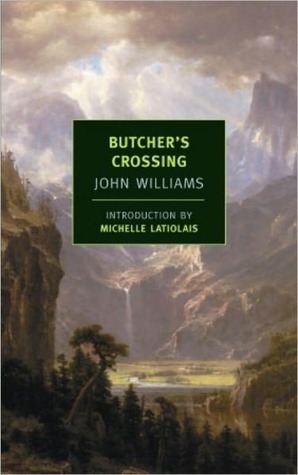More on this book
Community
Kindle Notes & Highlights
But whatever he spoke he knew would be but another name for the wildness that he sought. It was a freedom and a goodness, a hope and a vigor that he perceived to underlie all the familiar things of his life, which were not free or good or hopeful or vigorous. What he sought was the source and preserver of his world, a world which seemed to turn ever in fear away from its source, rather than search it out, as the prairie grass around him sent down its fibered roots into the rich dark dampness, the Wildness, and thereby renewed itself, year after year.
As he listened to Charley Hoge’s exhortations, his mind wandered away from the impassioned words; he thought of the times, short months before, when he had been compelled to be present each morning at eight at King’s Chapel in Harvard College, to listen to words much like the words to which he listened now. It amused him to compare the crude barroom that smelled of kerosene, liquor, and sweat to the austere dark length of King’s Chapel where hundreds of soberly dressed young men gathered each morning to hear the mumbled word of God.
He saw only a deep green mat of needle and bough, which became in his gaze without identity or size, like a dry sea, frozen in a moment of calm, the billows regular and eternally still—upon which he might walk for a moment or so, only to sink as he moved upon it, slowly sink into its green mass, until he was in the very heart of the airless forest, a part of it, darkly alone.
During the last hour of the stand he came to see Miller as a mechanism, an automaton, moved by the moving herd; and he came to see Miller’s destruction of the buffalo, not as a lust for blood or a lust for the hides or a lust for what the hides would bring, or even at last the blind lust of fury that toiled darkly within him—he came to see the destruction as a cold, mindless response to the life in which Miller had immersed himself.
It was not itself; or it was not that self that he had imagined it to be. That self was murdered; and in that murder he had felt the destruction of something within him, and he had not been able to face it. So he had turned away.
A clear and profound silence rose from the valley, above the mountains, and into the sky; the sound of his breathing came loudly to him; he held his breath to gather the quality of the silence.
All about the ground the pale new grass reflected the light of the sun into the shadowed recesses beneath the great pines, and the dark trunks glowed in that light, faintly, as if the light came from the hidden centers of the trees themselves. He thought that if he listened he could hear the sound of growth.
“Me ruin you?” McDonald laughed. “You ruin yourself, you and your kind. Every day of your life, everything you do. Nobody can tell you what to do. No. You go your own way, stinking the land up with what you kill. You flood the market with hides and ruin the market, and then you come crying to me that I’ve ruined you.”
“Well, there’s nothing,” McDonald said. “You get born, and you nurse on lies, and you get weaned on lies, and you learn fancier lies in school. You live all your life on lies, and then maybe when you’re ready to die, it comes to you—that there’s nothing, nothing but yourself and what you could have done. Only you ain’t done it, because the lies told you there was something else. Then you know you could of had the world, because you’re the only one that knows the secret; only then it’s too late. You’re too old.”
Was it in everyone? he asked, without using the words. Did it lurk hidden in everyone, waiting to spring out, waiting to devour and rend, until there was left only the blankness he had seen in the blue stare that Charley Hoge now had to give the world? Or did it wait without, crouched like a timber wolf behind a rock, to spring suddenly and horribly without reason upon anyone who passed it by? Or beyond one’s knowledge, did one seek it out, this shape of terror, and pass it by in an obscure, perverse hope that it might spring? At that swift moment in the river, did the splintered log seek the
...more
He knew that he would not go back. He would not return with McDonald to his home, to the country that had given him birth, had raised him in the shape he occupied and the condition that he had only begun to recognize, and that had relinquished him to a wilderness in which he had thought to find a truer shape of himself. No, he would never return.


